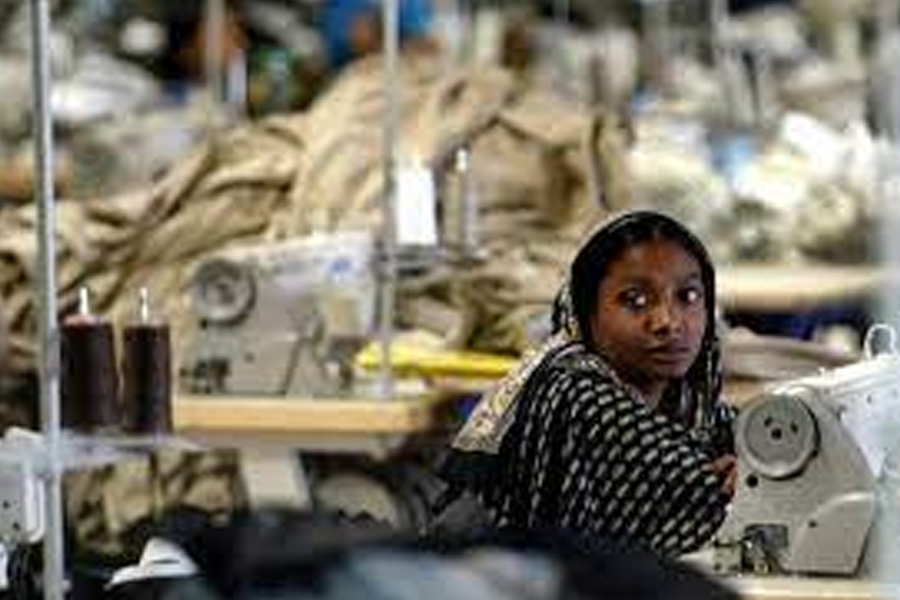
Published :
Updated :

Half of the respondent garment workers bear woes for climate-change implications while 36 per cent migrated from backwaters being tossed off by climatic calamities, according to a study.
"An aggregate 50 per cent of the surveyed readymade garment (RMG) workers suffer from climate-change implications, resulting in a 23-percent rise in leave/absence," says the report on the study titled 'Assessing exposure and vulnerabilities of RMG workers to climate change and environmental impact and the role of trade unions'.
Capacity loss, less production, less income, increased commodity price and job insecurity are reportedly among the main implications from climate change, according to the survey conducted by Bangladesh Institute of Labour Studies (BILS).
Deputy Director of BILS Md Manirul Islam shared the findings at an event held Wednesday in Dhaka. The survey was conducted on a total of 402 garment workers from 160 factories located in Tongi and Gazipur in the apparel hub close by the capital.
The report speaks volumes on their journeys mainly from the calamity-prone coastal belts to urban areas in search of a living, and found some scope in the apparel factories in Bangladesh's predominantly largest export industry.
Sufferings from diseases are reported top (100 per cent) implications on workers from climate change, followed by heat and hot (65 per cent), waterlogging from rainfall (42 per cent), cyclones/storms, and floods (19.7 per cent), it reveals.
"About 99 per cent migrated from a remote location while some 36 per cent reportedly migrated for climate-change causes. Floods, droughts, cyclones, crop failures, increase in pest attacks and productivity loss are the vulnerabilities," says the report.
And 95-percent workers have migrated for poverty, 7.0 per cent for an environmental reason, particularly for riverbank erosion, while one per cent for political reason, it adds.
According to the surveyed workers, water pollution has increased by 18 per cent, air pollution 64 per cent and 14 per cent reported 21-percent rise in headache, 14-percent dizziness, 20-percent tiredness and 25-percent breathing problem.
It also shows that 7.0-percent rise in water logging and usage of gas increased almost 33 per cent while use of wood reduced significantly.
Describing inside factory temperatures, 60 per cent reported temperature rise inside while 94 per cent mentioned five-to six-month- long summer season.
Some 65 per cent of the respondents reported that factories discharge their liquid wastes into local drains while 8.0 per cent mentioned treatment plants. And 54-percent workers opined trade unions don't have requisite skills and training to deal with environmental and climate-related issues.
The report made a number of corrective recommendations, including measures to reduce pollution, ensuring sufficient healthcare facilities, effective waste management and developing rules and regulations with proper implementation and government monitoring.
Munni_fe@yahoo.com


 For all latest news, follow The Financial Express Google News channel.
For all latest news, follow The Financial Express Google News channel.